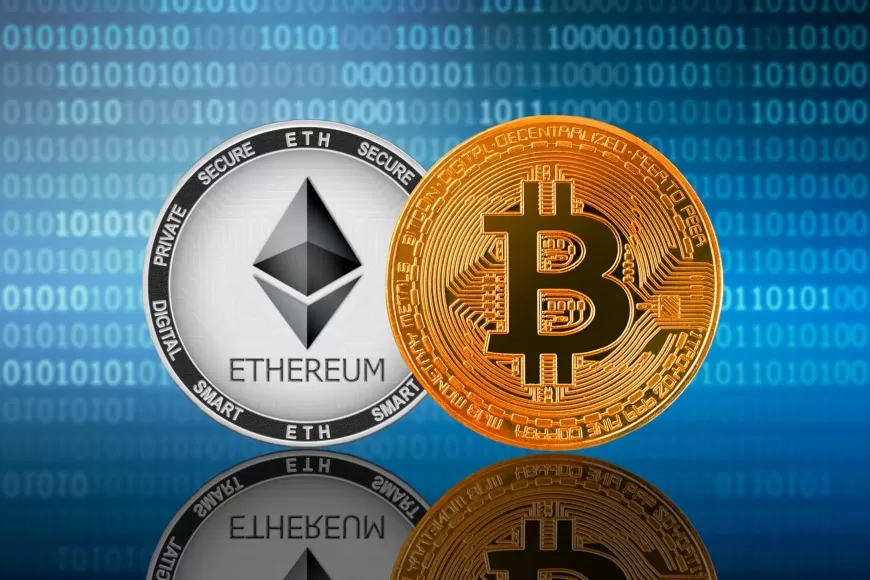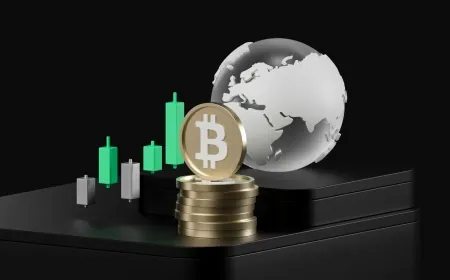Is Ethereum a Smart Buy After the Bitcoin Halving?
Ethereum's future looks bright post-Bitcoin halving with potential ETF approvals and network upgrades. Is it a smart buy now?

Many cryptocurrencies experienced a pullback a couple of years ago due to rising interest rates, which pushed investors towards safer options. However, three major factors have boosted the broader market this year: the expectation of lower rates, the approval of the first Bitcoin spot exchange-traded funds (ETFs) in January, and Bitcoin's halving in April.
With Bitcoin's halving now complete, reducing the mining rewards every four years, it seems there might be fewer short-term triggers for Bitcoin's growth. So, is it time to look at Ethereum, the second-largest cryptocurrency, for potentially bigger gains this year?
Ethereum vs. Bitcoin: Key Differences
Ethereum's native token, Ether, operates on the Ethereum blockchain, launched in 2015. Initially, Ethereum used the same energy-intensive proof of work (PoW) mining method as Bitcoin. However, it switched to a more energy-efficient proof of stake (PoS) method in a process called The Merge in 2022. This transition cut Ethereum's mining energy use by 99.95% and made it deflationary, meaning more coins are burned (removed from circulation) than created. PoS blockchains also let investors stake, or lock up, their tokens to earn rewards similar to interest.
The Ethereum blockchain was designed to support smart contracts, which allow for the creation of decentralized apps (dApps), smaller tokens, and other crypto assets. In contrast, Bitcoin's blockchain is mainly used to mine more coins. This distinction leads to Ethereum being valued for its expanding developer ecosystem, while Bitcoin is often compared to gold or silver.
This key difference led the U.S. Securities and Exchange Commission (SEC) to classify Bitcoin as a commodity, supporting the approval of the first Bitcoin spot ETFs. However, the SEC has been hesitant to classify Ethereum and other PoS coins as commodities, suggesting the staking process makes them more like securities. Despite this, the SEC has allowed for Ethereum's first spot-price ETF applications earlier this year.
Ethereum's Prospects and Challenges
Ethereum's potential approval of its first spot ETFs is a significant near-term catalyst. The SEC has reportedly given preliminary approvals to at least three of the eight planned spot-price ETFs, with most expected to start trading as early as July 23. Ethereum's price has already increased by about 50% this year, and the introduction of spot ETFs might push it even higher. For reference, Bitcoin's price surged over 40% following the approval of its first 11 ETFs on January 10.
Another major catalyst is Ethereum's recent Dencun upgrade, which boosts its speed and reduces gas fees (network user fees) for its Layer-2 blockchain. Additionally, stabilizing and declining interest rates could attract investors back to Ethereum and other cryptocurrencies.
However, Ethereum still faces some challenges. The Dencun upgrade has made Ethereum inflationary again, meaning its supply will increase unless more tokens are burned. It also processes transactions slower than newer PoS blockchains like Solana and Cardano, which could hinder its ecosystem's growth.
Furthermore, Ethereum's planned spot ETFs won't include staking mechanisms like its underlying tokens, making them less appealing than directly owning the cryptocurrency. Lastly, the market's anticipation of lower rates and ETF approvals may already be reflected in its current price.
Is Ethereum a No-Brainer Buy Right Now?
Currently trading at about $3,400, some optimistic investors believe Ethereum could see significant gains in the coming years. VanEck's Matthew Sigel and Patrick Bush predict its price could more than triple to $11,800 by 2030, while Ark Invest's Cathie Wood suggests it could reach an astounding $166,000 by 2032.
While these predictions should be taken with caution, Ethereum's spot-price ETF approvals and the expectation of lower interest rates could limit its downside this year. The Ethereum network's next planned upgrade, Pectra, aims to further increase its speed and lower gas fees, helping it compete with Solana and Cardano. Thus, Ethereum remains a solid cryptocurrency to consider accumulating, but investors shouldn't expect it to skyrocket in the immediate future.
Also Read: Donald Trump Urges U.S. to Lead in Crypto to Counter China’s Influence






























































